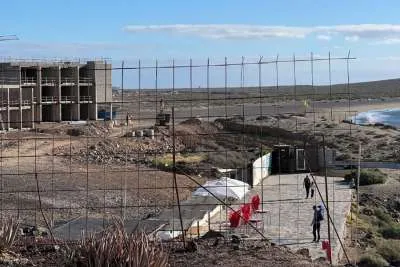Real estate sector opposes restrictions on property purchases by non-residents
- 28-05-2024
- Business
- Canarian Weekly
- Photo Credit: CW
The Canary Islands Association of Real Estate Management Companies (ACEGI) has voiced strong opposition to the regional government's proposal to limit property purchases by non-residents and designate stressed areas to control property prices.
In a statement issued yesterday (Monday), ACEGI expressed "concern and disappointment" regarding the recent policy shift by the Canary Islands Government. The association criticised their intent to implement stressed areas and regulate holiday homes, urging officials to reconsider and honour prior commitments and not revoke licences
Furthermore, the association regrets that the vice president of the Canary Islands, Manuel Domínguez, has not considered the proposals that ACEGI presented to him last January, which they consider to be a "lack of interest in the needs of the sector".
Additionally, they noted that the regional Housing Minister, Pablo Rodríguez, had previously pledged not to impose stressed areas. However, recent government actions indicate a significant policy reversal, creating uncertainty and potential harm to the sector.
The association emphasised the critical role of foreign investment in the Canary Islands, particularly through real estate transactions. ACEGI refuted the government's stance on the negative impacts of foreign property purchases, arguing that such investments are crucial for the local economy.
They highlighted that 30% of home purchases on the islands involve foreigners, a figure that includes both resident and non-resident foreigners. Therefore, they suggested that a more detailed breakdown is needed as it would show a much lower impact from non-resident buyers.
ACEGI also defended the importance of holiday homes in the islands' tourism sector, calling for balanced and consensual regulation. They criticised the current draft law on vacation housing as inconsistent with proposals from the regional Tourism Minister, Jéssica de León.
In their statement, ACEGI called on the Canary Islands Government to engage in open and collaborative dialogue with stakeholders before implementing measures that could significantly affect the local economy and real estate market. They urged the government to renew its commitment to working with the private sector to develop fair and sustainable housing solutions.
This appeal highlights the association's stance that foreign capital and a cooperative approach are vital for maintaining the region's economic stability and growth in the real estate sector.



























































